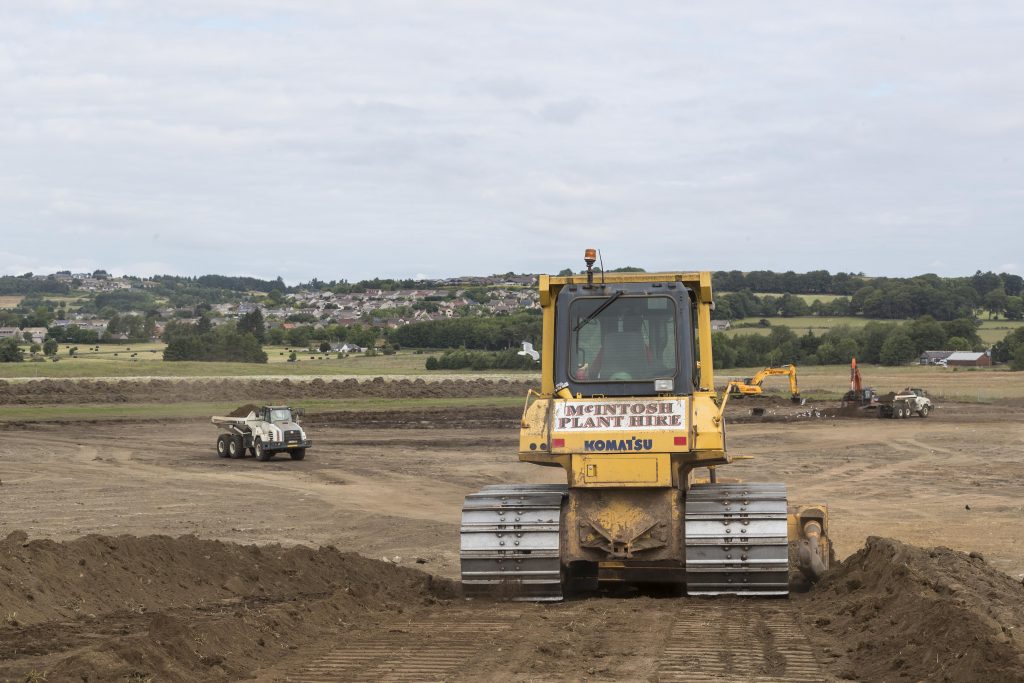Aberdeen 1 - 0 No Kingsford Stadium
Following last week’s news that a protest group lost in its appeals against Aberdeen Football Club’s proposals for a new £50 million stadium, our sister publication Scottish Legal News outlines the judgment in full.

An environmental campaign group which sought reduction of a decision by Aberdeen City Council to grant planning permission for the development of a new stadium for Aberdeen Football Club have had their legal challenge dismissed.
A judge in the Court of Session refused a petition for judicial review by No Kingsford Stadium Limited after ruling that the company had failed to identify any error of law in the local authority’s decision-making process.
‘Public benefits’
Lord Tyre heard that in April 2018 the respondent council granted planing permission for a proposed development at West Kingsford near Westhill, Aberdeen, comprising community and sports facilities, including a football academy and 20,000-seater stadium, as well as associated access roads, parking, landscaping and engineering works.
The petitioner, a company whose aims include advancing environmental protection and sustainable development in the community of Westhill and West Aberdeen, opposed the football stadium development and made various representations to the council against the plans and participated in pre-determination hearings.
The proposed development, located on an undeveloped and allocated site within an area designated as green belt, would be contrary to the provisions of the Aberdeen Local Development Plan (ADLP), but the council considered that there were no other sites within the city that would be suitable, available and deliverable, and preferable in terms of environmental impact.
Having assessed the development against various policies in the ADLP, the local authority concluded that the “public benefits” of the stadium outweighed the provisions of the development plan and that no material considerations had been identified that would weight significantly to the contrary.
The petitioner sought judicial review of the decision to grant planning permission for the development, claiming that the council made “material errors of law” in the interpretation and application of its own development policy, and that it failed to establish the necessary factual basis for the sequential approach it adopted in concluding that there was no alternative available site.
In terms of section 25 of the Town and Country Planning (Scotland) Act 1997, applications for planning permission require to be determined in accordance with the development plan, unless material considerations indicate otherwise.

‘Perverse and irrational decision’
It was argued that the council’s approach was “perverse and irrational” in that it left out of account specific policy objectives designed to achieve sustainable development.
Two other possible alternative sites, at King’s Links and Loriston, had been considered after the council concluded that the football club’s existing premises at Pittodrie were “not realistically suitable” for the development of a new stadium.
However, the King’s Links site, located near Pittodrie and within walking distance of the city centre, was not sufficient to accommodate the stadium and training facilities, while the Loriston site was neither big enough nor “financially viable” for the club.
The petitioner submitted that the respondent’s sequential approach to site selection was “significantly flawed” as it had not determined the minimum area required for the proposed development.
It therefore failed to establish a factual basis upon which it could be concluded that sufficient land was not available at either King’s Links or Loriston and failed to give “adequate reasons” for its decision.
On behalf of the council, it was submitted that the decision to grant planning permission was a “lawful exercise of proper planning judgement”, as required by the legislation.
The local authority had adopted a “proper and realistic sequential approach” to the question of availability of other sites and had been entitled, in the excessive of its judgment, to conclude that there was “no preferable alternative” available.

Groundworks at the site started last year
‘No error of law’
The club, which participated in the proceedings as an interested party, adopted the council’s arguments, adding that there was no obligation on the local authority to decide what size of site was needed for the proposed development.
It was argued that the council had adopted a “reasonable approach” in considering whether sufficient land was available at the other sites and in its assessment of “best value” - accordingly “no error of law” had been demonstrated.
The judge upheld the council’s decision after ruling that it had made no error of law and had given proper reasons for its conclusions.
In a written judgment, Lord Tyre said: “In my opinion the petitioner has not identified an error of law in the approach of the council that would entitle this court to interfere with its decision to grant planning permission for the proposed development.”
He added: “It was submitted that the council’s conclusion was perverse in that it failed to attach sufficient weight to the development plan policies whose purpose was to protect the green belt from development. This amounts to no more than a disagreement with the council’s assessment and does not in my view provide justification for a finding of perversity or irrationality.”
The judge also held that the council did not err in law in failing to make a determination as to the minimum site size required for a single or disaggregated stadium and training facilities development.
He explained: “It fulfilled its duty to assess whether there was an available and sequentially preferable site for the development that had been proposed, adopting a flexible and realistic approach to what was needed for that development as opposed to a different, more restricted one.”
Lord Tyre also rejected the criticisms of the council’s reasons for rejecting the other sites, adding that the local authority had given “proper, adequate and intelligible reasons for its conclusions”.





















